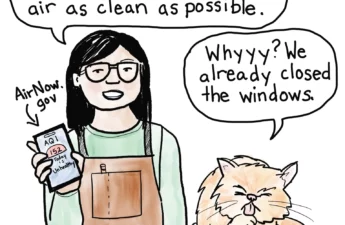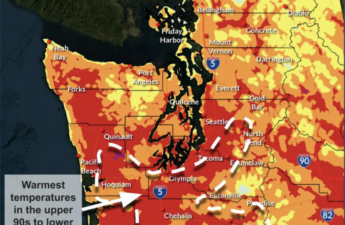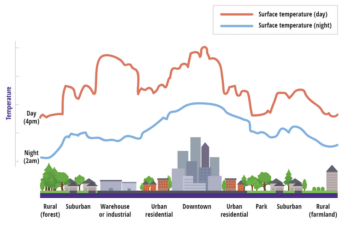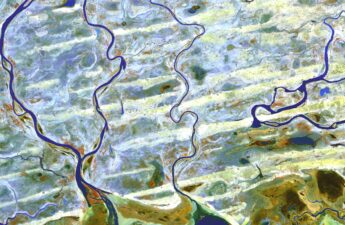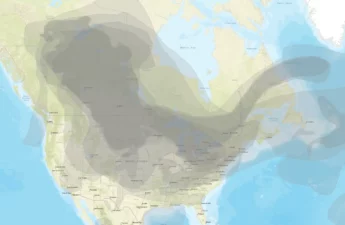Category: Environment
Four steps to stay safe from wildfire smoke this summer
Breathing wildfire smoke can harm everyone’s lungs, heart, and overall health. And this year we’re expecting hotter weather and less rain—meaning more smoky days.
Climate change and mental health: How extreme heat can affect mental illnesses
Many people can relate to the sleepless nights during hot summer months, as well as anecdotal experiences of irritation and aggression when thermally uncomfortable.
But for those living with mental illnesses, the hazard of extreme heat is more dire than temperamental responses to day-to-day disruptions.
CDC launches new online heat-risk resources
New Heat and Health Initiative, developed in response to increased health risks from heat exposure, aims to improve American’s ability to stay safe during heat events
The Cost of Freeing Drinking Water from ‘Forever Chemicals’
In proposing the limits, EPA officials said that they had leveraged the latest science to protect the public from PFAS pollution. Environmental groups welcomed the move as long overdue. But the standard has drawn widespread criticism from the water utility industry and some scientists who say that in many places, small drops in PFAS water levels will matter little for exposure or health.
Resources and emergency shelters available statewide to keep people safe and warm during dangerously cold winter weather
Cold weather can be very dangerous if you are not prepared, particularly for people without homes, the elderly, and those with medical conditions. Health risks include hypothermia, frostbite, falls, vehicle accidents, and carbon monoxide poisoning from improper indoor use of fires or generators. Winter storms can make these problems worse by causing power outages and property damage.
TIPS FOR CLEAN AIR INDOORS ON SMOKY DAYS: A PUBLIC HEALTH COMIC
Comic by Meredith Li-Vollmer from Public Health — Seattle & King County
Hottest temperatures of the year forecasted for Western Washington this week
National Weather Service issues excessive heat warning for much of Puget Sound
How to Prepare for an Early and Long 2023 Wildfire Season in King County
his year, wildfire smoke is forecast to start early in King County and last into the fall. Record-setting forest fires have already darkened skies in Canada and the eastern U.S., and our region is set to be next. By preparing now, you can help to protect your and your family’s lungs, heart, and health from smoke.
Saving lives from extreme heat: Lessons from the deadly 2021 Pacific Northwest heat wave
The 2021 heat dome was Washington’s deadliest weather disaster on record. It contributed to 441 deaths in the state between June 27 and July 3, our research shows. Medical systems were overwhelmed. There are numerous ways to avoid this deadly of an outcome in the future. Many emerge from thinking about extreme heat as long-term risk reduction, not just short-term emergency response.
Wildfire smoke forecasted to impact Washington again this season
‘Smoke Ready Week,’ June 12-16, is the perfect time to prepare for unhealthy air
Climate Crisis Is on Track to Push One-Third of Humanity Out of Its Most Livable Environment
Climate change is remapping where humans can exist on the planet. As optimum conditions shift away from the equator and toward the poles, more than 600 million people have already been stranded outside of a crucial environmental niche that scientists say best supports life. By late this century 3 to 6 billion people, or between a third and a half of humanity, could be trapped outside of that zone, facing extreme heat, food scarcity and higher death rates, unless emissions are sharply curtailed or mass migration is accommodated.
How wildfire smoke can harm human health, even when the fire is hundreds of miles away – a toxicologist explains
One concern is that smoke can suppress macrophage function in the lung, altering the immune cell’s function enough that you become more susceptible to respiratory infection.
Climate change is changing public health
In Washington, a new team of epidemiologists is preparing for a hotter, smokier future.
Washington’s homelessness challenge focus of Inslee’s State of the State address
“When there’s not enough housing for all, rents and prices skyrocket beyond what many can afford,” Inslee said. “An until we fix our housing crisis, thousands of people will remain homeless.”
Proliferating Wildfires Threaten Health Across the Country
By Matt VasilogambrosStateline As wildfires continue to burn in parts of the United States, state public health officials and experts are increasingly concerned about residents’ chronic exposure to toxin-filled smoke. This year has seen the most wildfires of the past…





